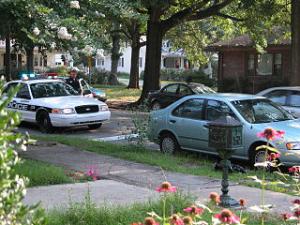Drug War Issues
Politics & Advocacy
A bill that would make it illegal to drive with more than a certain amount of THC in one's system has died in the state legislature. The bill, Senate Bill 117, passed the Senate last Tuesday and was approved by the House Judiciary Committee last Thursday, but failed to make it to a House floor vote before the session ended Wednesday.

Per se laws currently apply to drunk driving, where a blood alcohol content of 0.08% is all the evidence needed to convict someone for that offense. Per se drugged driving laws have also been passed in a number of states, but the science around the effects of marijuana on drivers is much less settled, and that's leading some to cry foul.
A similar bill nearly passed last year, winning approval in the House, but was derailed in the Senate at the last minute, at least in part thanks to Westword marijuana columnist William Breathes, who underwent drug and driving tests the day after smoking marijuana. Breathes demonstrated that his ability to drive was unimpaired, even though the THC level in his blood was three times that which would have gotten him convicted of DUID.
The bill barely made it out of the Senate this week. It appeared ready to die on a voice vote, but then bill sponsor Sen. Steve King (R-Grand Junction) called for a roll call vote, and it passed 18-17.
The bill faced similar drama in the House Judiciary Committee, where it was also approved by a single vote. There, Rep. Jerry Sonnenberg (R-Sterling), sat silently for almost an entire minute when called to cast his vote. He then voted in favor of the bill, while signaling that he didn't really support it.
"I have issues with the bill," Sonnenberg said. "The truth is I think it needs a full hearing in front of the house... I had made the commitment to make sure that hearing happens."
Foes of the bill said it is almost certain to result in people being convicted of impaired driving when they are not impaired. They also noted that, unlike alcohol, there is no practical way for people who have used marijuana to test their blood levels.
"You really can't be sure every time you step in your car if you're going to be convicted as a result of it," said Rep. Daniel Kagan, (D-Cherry Hills Village) before voting against the measure.
While the bill easily passed the House last year, opponents early this week still hoped to kill or amend it either in the Appropriations Committee or on the House floor. The Marijuana Policy Project was asking that the bill be amended to make the five nanogram limit presumptive instead of per se, so that a driver's having exceeded that limit could be used as evidence of impairment, but would not result in an automatic conviction. It was also asking for an amendment to exempt medical marijuana patients from the law.
But now, the bill is dead--for the second year in a row.
This work by StoptheDrugWar.org is licensed under Creative Commons Attribution-ShareAlike 4.0 International
Add new comment